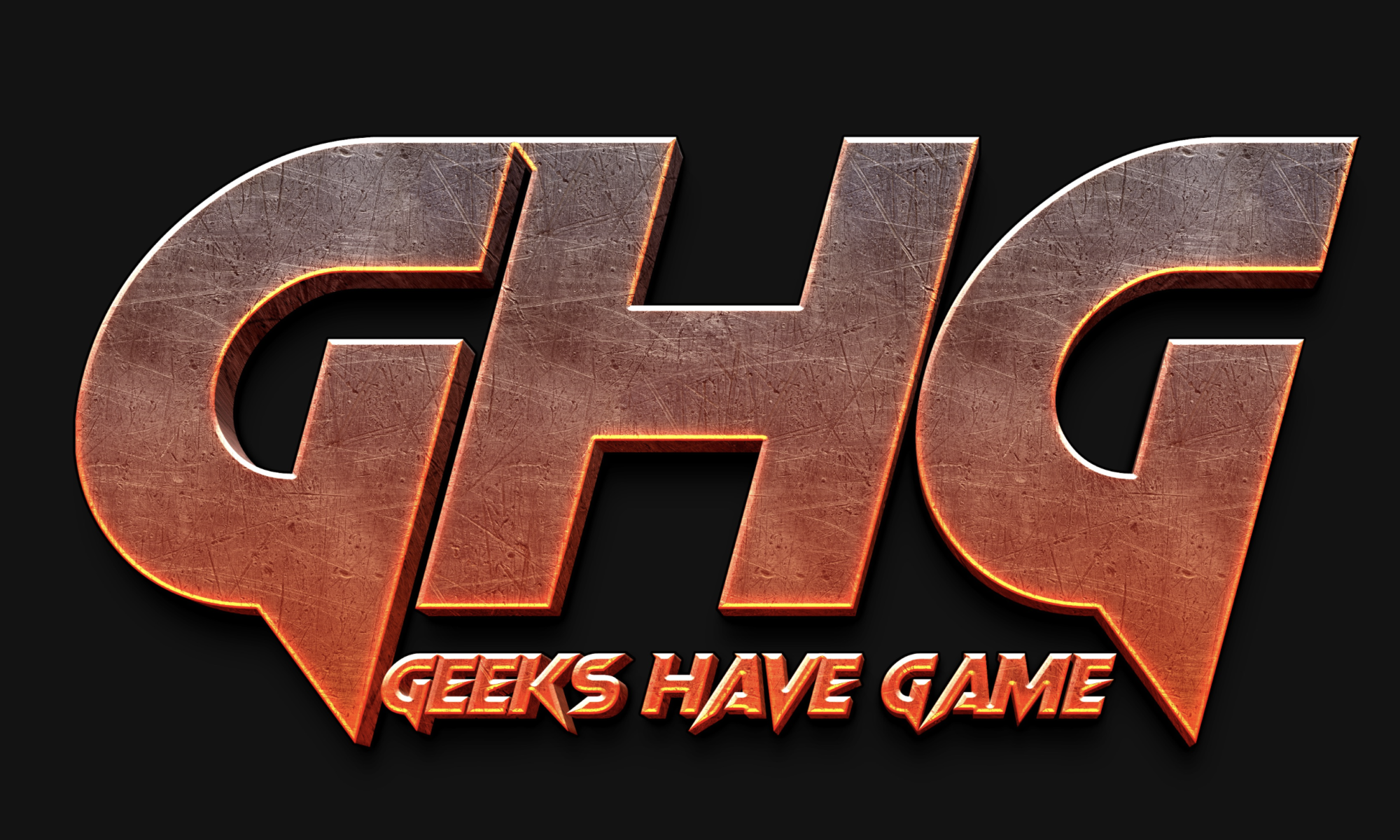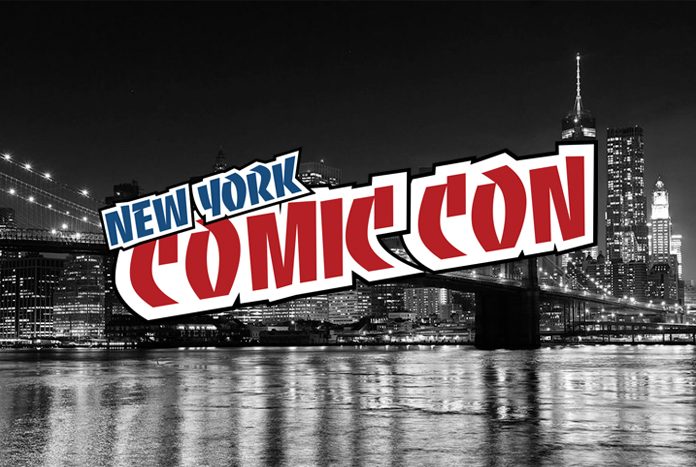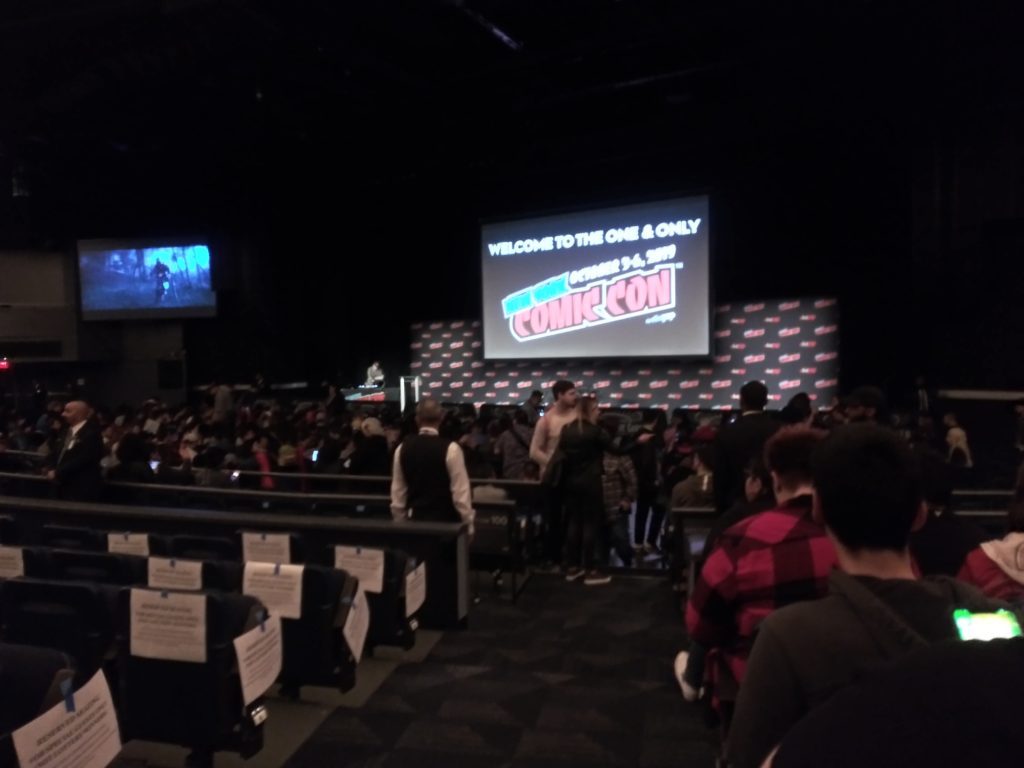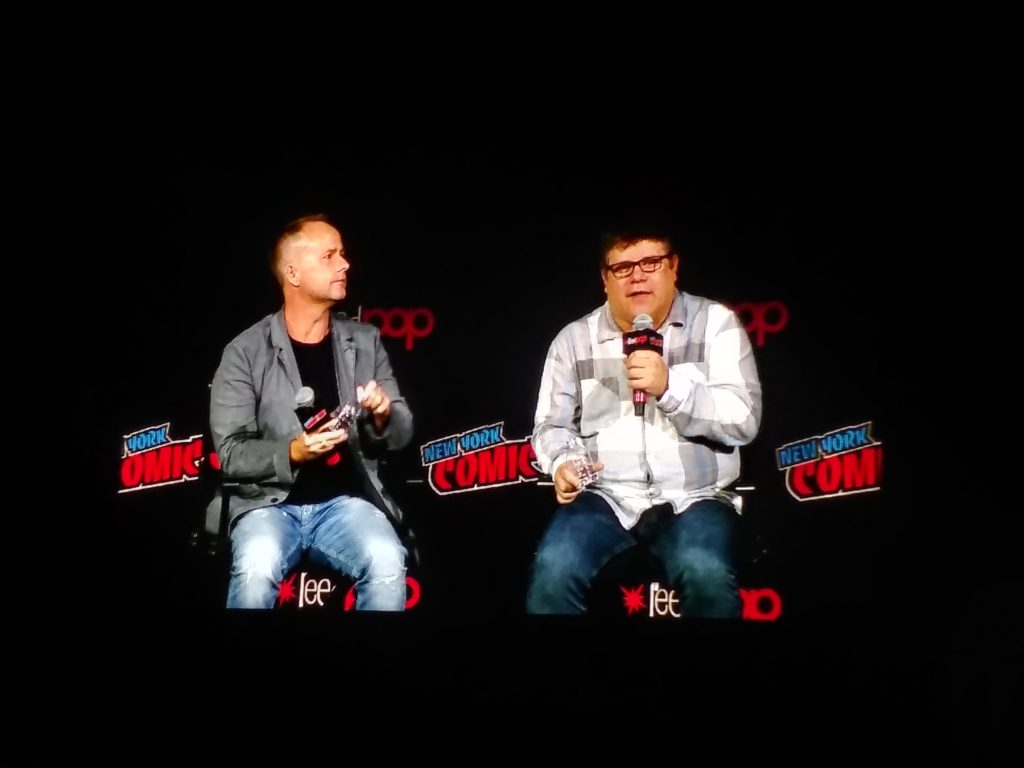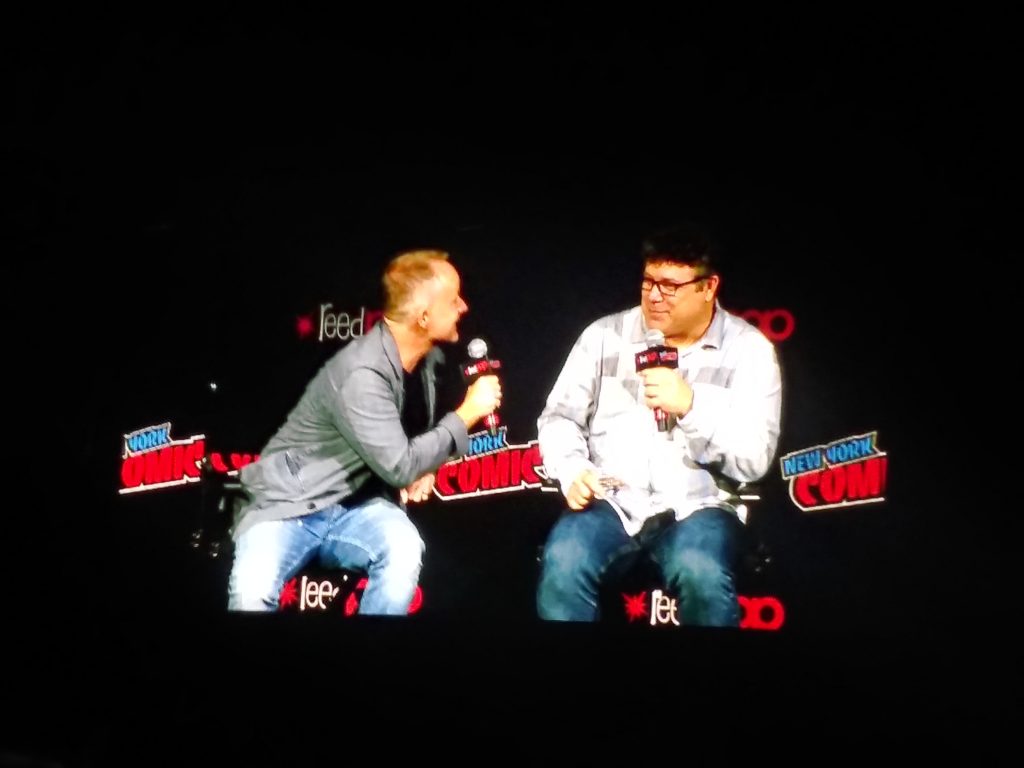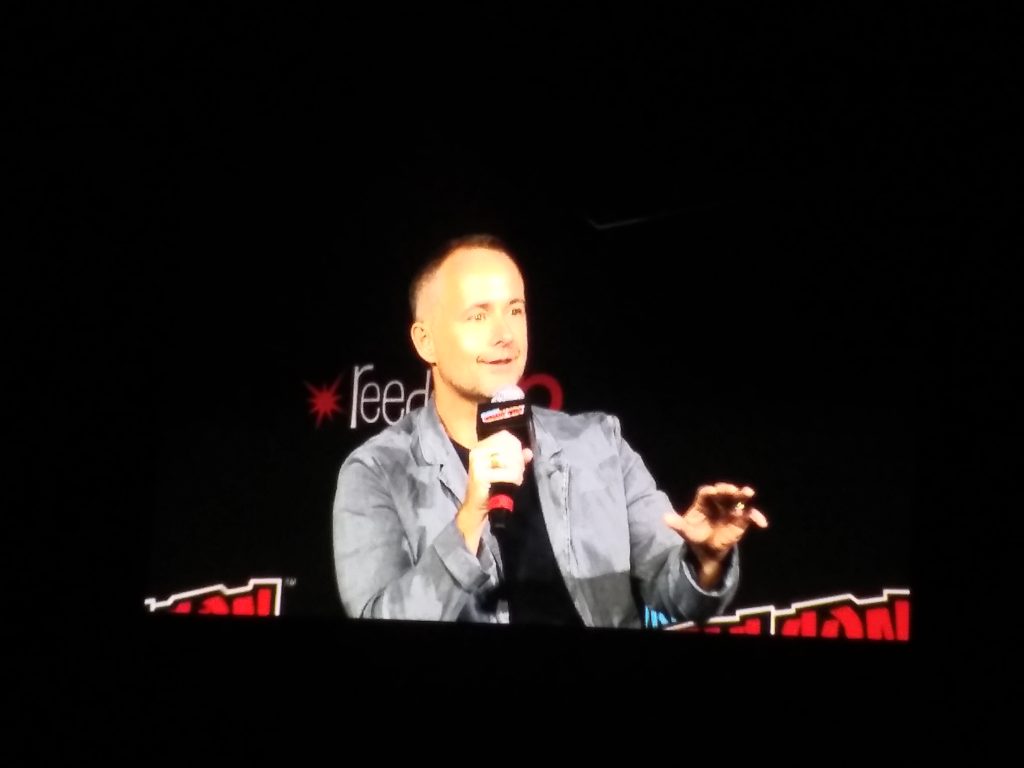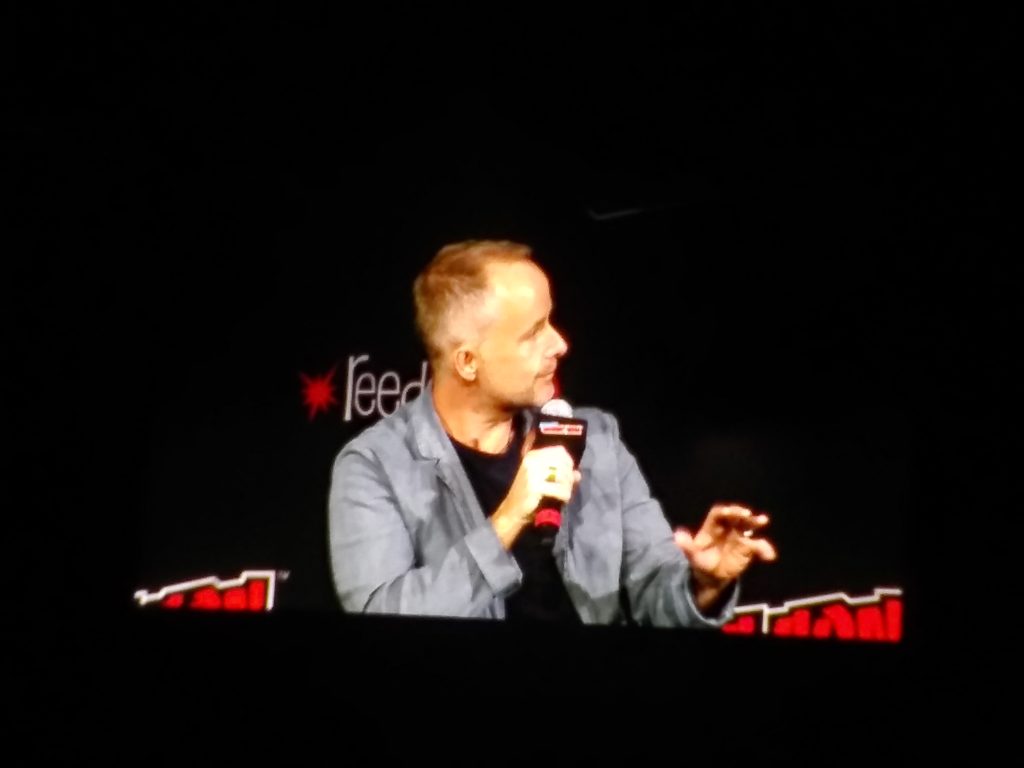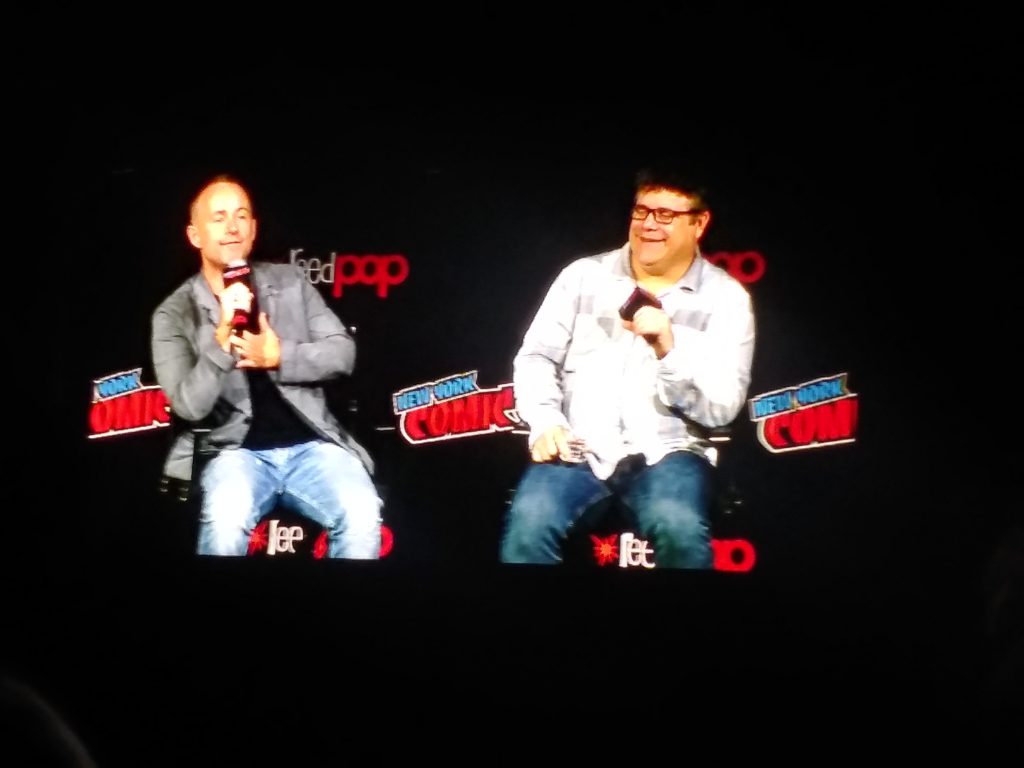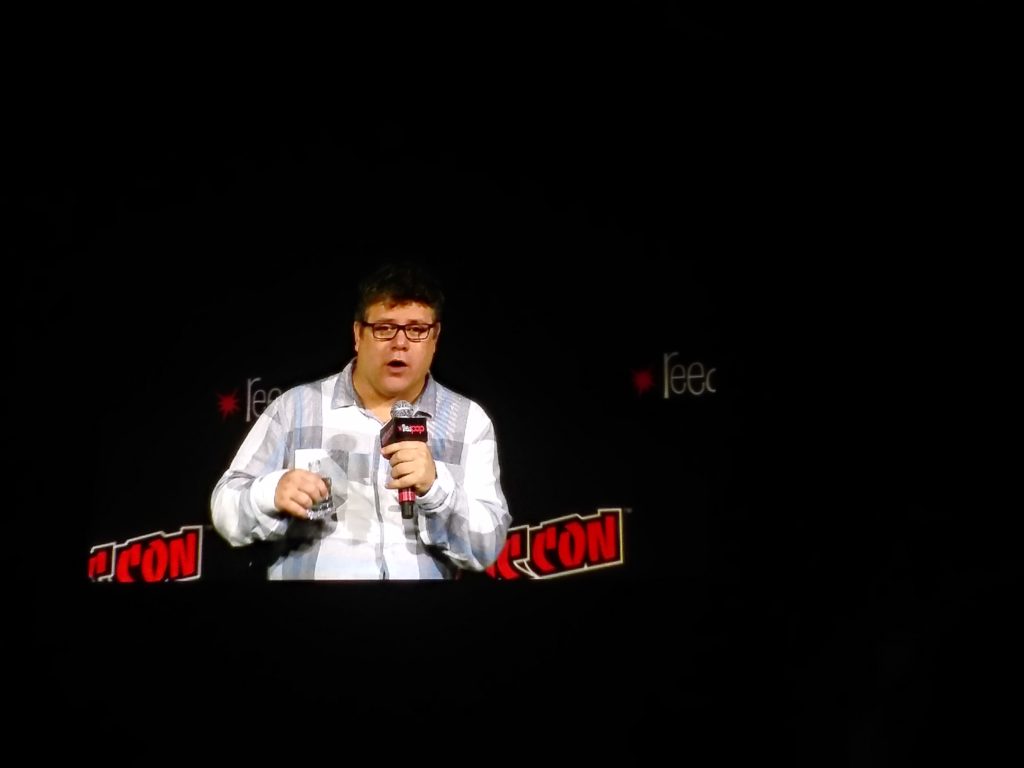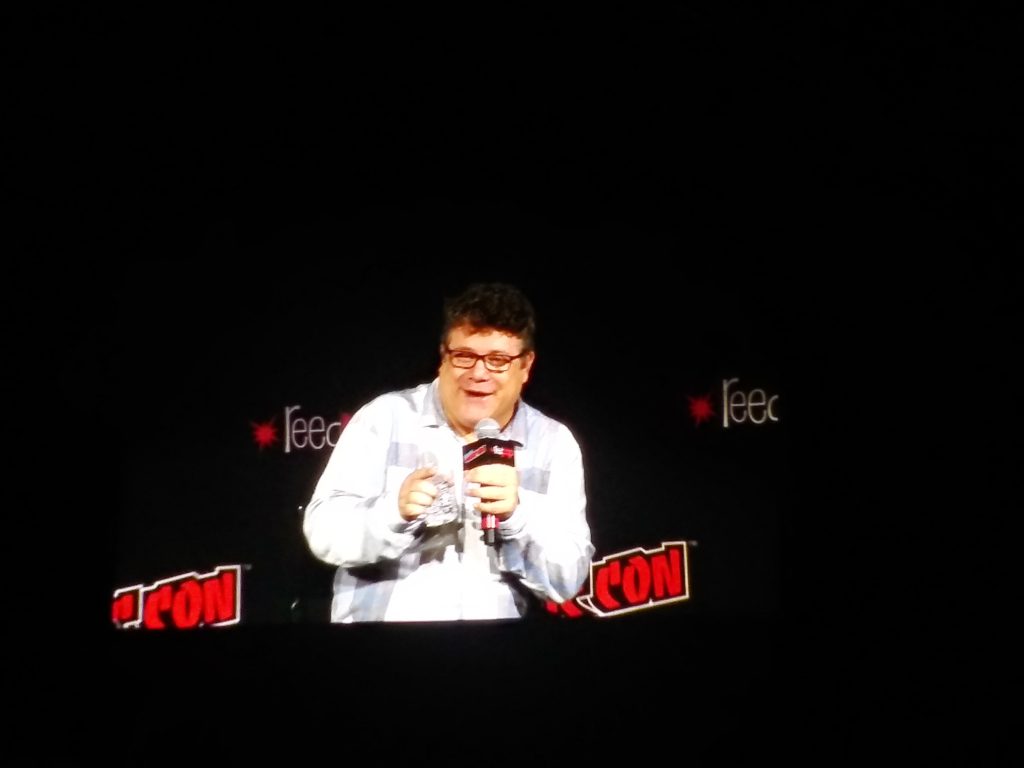New York Comic-Con’s 2019 edition saw the reunion of two of the leading stars of Peter Jackson‘s Lord Of The Rings trilogy, up front and center at the Hulu Theater at Madison Square Garden. For as large a crowd as it’d seemed (the line wrapped up halfway down 32nd Street, and halfway up 7th Avenue), there were still plenty of seats available once the doors opened at 10am.
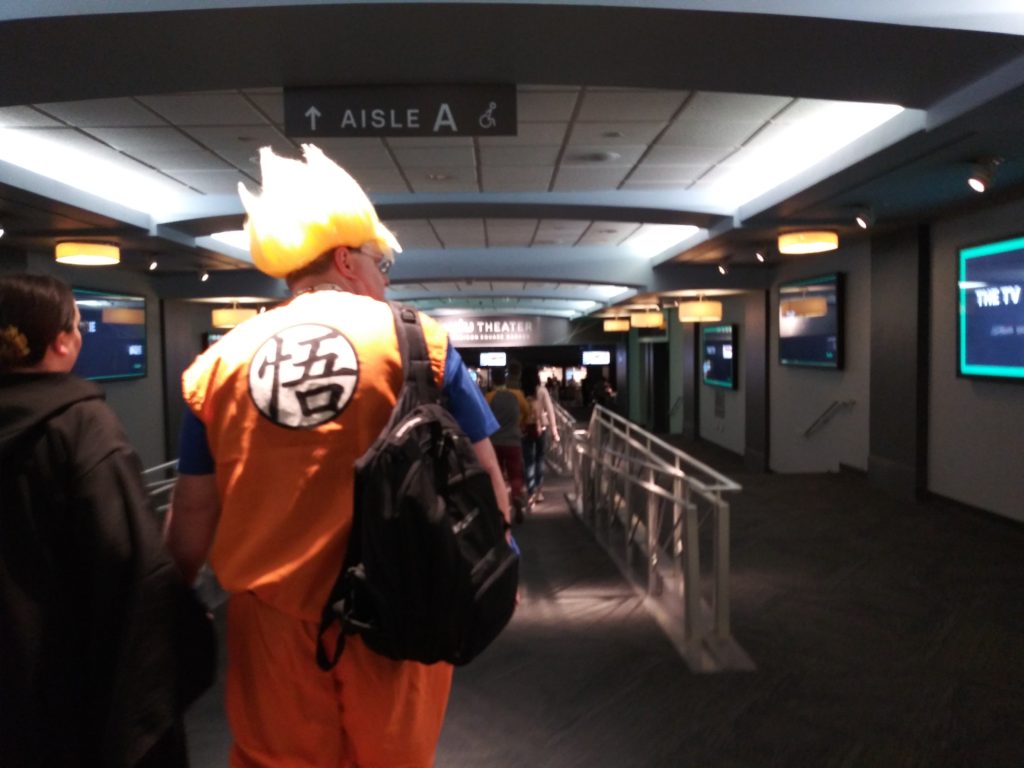
As the start time neared, the DJ switched gears from whatever electronic-based remixes of modern hits he’d been playing (I couldn’t for the life of me name a single recent song that he’d played), to circa 2001, when the first Lord Of The Rings film was released. As Shaggy, Gwen Stefani, Smash Mouth, and Gorillaz(amidst many, many others) played for some time, eventually the music subsided, and the theater lights dimmed as Billy Boyd (Pippin) and Sean Astin (Sam) strode onstage, one hobbit less (Dominic Monaghan had to cancel at the last minute). But even with the loss of one of the guest stars, there was still plenty to note in this retrospective panel.
As a pseudo-meandering free-for-all, Astin and Boyd bantered. Astin opened up by admitting that he had never even read Tolkien’s novels prior to joining the cast, while Boyd had admitted to reading the novels while growing up in Glasgow. There had been many attempts to adapt The Lord Of The Rings (Ralph Bakshi‘s 1978 version being among one of the more infamous), but in 1999, when production was ramping up, the technology had just caught up to do so faithfully. The appeal of The Lord Of The Rings, Astin recalled, was its sense of timelessness: at no point has it ever been a product of its time, but there was a sense of the book — and by extension, the films — of having always existed. “A movie like The Goonies, on the other hand, has a…time-ness…to it. It is very much of its time.” Astin concluded.
As the panel moved on to focus on the actual filming of the fantasy trilogy, both guests paused to watch as a single yellow piece of confetti nonchalantly floated down from the ceiling, stopping both of them in their tracks. “Did the Rangers just win?” Astin quipped, to an uproarious applause.
Billy Boyd opened the recollection of shooting with the confirmation that, yes, the cast did get matching Elvish tattoos near the end of filming, with Sean Bean being among the last to acquire his tattoo (which was an Elvish “q” letter). While Astin declined to indicate where exactly his tattoo is located on his body, Boyd jumped into a story about his.
While the tattooing had been done near the end of filming, there were still a few shooting days to go afterwards. He’d decided on getting his tattoo on his ankle…failing to consider the fact that there were still days of filming to go. Days of filming which required him to wear prosthetic hobbit feet. Prosthetic hobbit feet which required cleaning, beforehand, with alcohol. And which required alcohol to remove said prosthetic; while he laughed about it now, telling the story, at the time, he was less amused!
Curiously, a karaoke night out during filming allowed for one of the trilogy’s most emotional and cathartic moment: producer/writer Phillipa Boyens had listen to Boyd sing during karaoke one night, and since composer Howard Shore (enthusiastic applause here) was unavailable to do so, she’d asked him to compose what would later be known as “Pippin’s Song” the song he sings midway through Return of the King. He’d taken his inspiration from old Scottish folk songs, the type he’d imagine Pippin having listened to when he was younger; a lamentable, melancholy sort of song. He recalled composing the song at the historic Abbey Road studios, where the Beatles‘ used piano and instruments lay in various corners, covered in sheets and tarps.
Both Astin and Boyd recalled one of their fondest memories of the shoot, one of the first instances in which they’d realized that, perhaps, they’d gotten involved with something massive that was going to resonate incredibly with audiences. They’d been shooting in the mountains, a difficult-to-traverse, protected landscape that was doubling for the Misty Mountains, in the scene right after Gandalf falls fighting the balrog. It was a sad, emotional scene, a single shot in which each character was given a moment, a close-up. Since getting to the set was so difficult, in attendance for the shoot was just the main cast, director, and a handful of crew. They’d taken their own bagged lunches for the day, as there wasn’t even catering or trailer or any sort of comfortable amenities. Their shots in the can, director Jackson invited them to view the day’s dailies, and the end result left them speechless. Both recalled this moment as one of THE most memorable of the shoot.
A Q&A session soon followed their recollections, with the first question being notable. A young woman named Eve, from Belgium, opened up by asking, “What are you (Billy) better at than him (Sean)?” With a knowing laugh at a familiar face, Boyd answered, with ample humility, “Everything.”
Pranks between Billy, Dominic, and the rest of the crew were common; during a kickoff party just before production began, Dominic, Billy, and Sean attended as jesters, livening up the crew and throwing pranks. Dominic and Billy even managed to convince Sean that the both of them had some sort of psychic connection, the result of having grown together in “the old country”; Astin would point out a card or some other such object to Dominic, and Billy (who was not facing either of them) would correctly guess the item. As Astin would comment, “Basically, Billy and Dominic are Mean Girls.”
As the panel began to wind down, the question of the importance of the fantasy trilogy, and what it means today, was asked. Astin, who has a well-documented history of activism, dove right in. “Every ‘civic’ level [of activism] is a high level.” He’d been fortunate enough to grow up in household where the importance of unions, and the benefits of collective bargaining, were right on display for him to witness. As an actor, he was proud of the work he’d put in promoting and working for Urban Canopy, an initiative that worked to promote and support the study and implementation of carbon capture technology.
But what of actors getting up on a platform, or otherwise getting involved in civil issues?
“No actor’s voice is more or less important than anyone else’s. But we can use it [our celebrity and clout] more potently.” As he would explain, there is no base level of activism or civic duty to be proud of, merely the act of volunteering and working for a larger cause is enough, and each person should take pride in doing whatever you can, at whatever level, to implement change. As it is sometimes hard to be positive today, Astin said there’s a part of Sam that could be used as inspiration.
“Always remember that there’s some good in the world, and that it’s worth fighting for.”
As the panel wound down, Astin, an avid runner, confessed the hardest ordeal of the shoot was being overweight for over two years…and joked that it’s a role he’d be better suited to now in his later years.
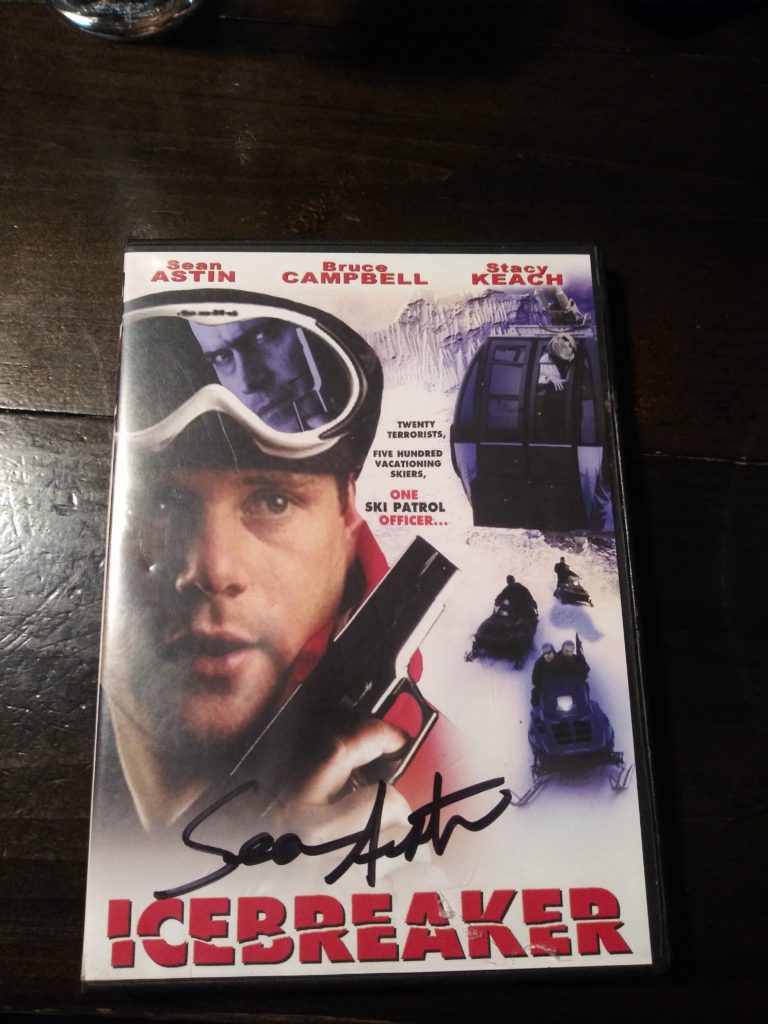
As I got up to move on to my next event of the day — a photo and autograph op with the very Sean Astin I’d just been listening to! — Billy Boyd ranted about Astin’s character, Bob, in Stranger Things.
“There’s a bleedin’ monster, you’re running down a staircase, and you just stop and stare at the kids! No wonder you got killed!”
“Yeah,” Astin agreed, a little too forlornly. “Bob deserved better.”
-J.L. Caraballo
